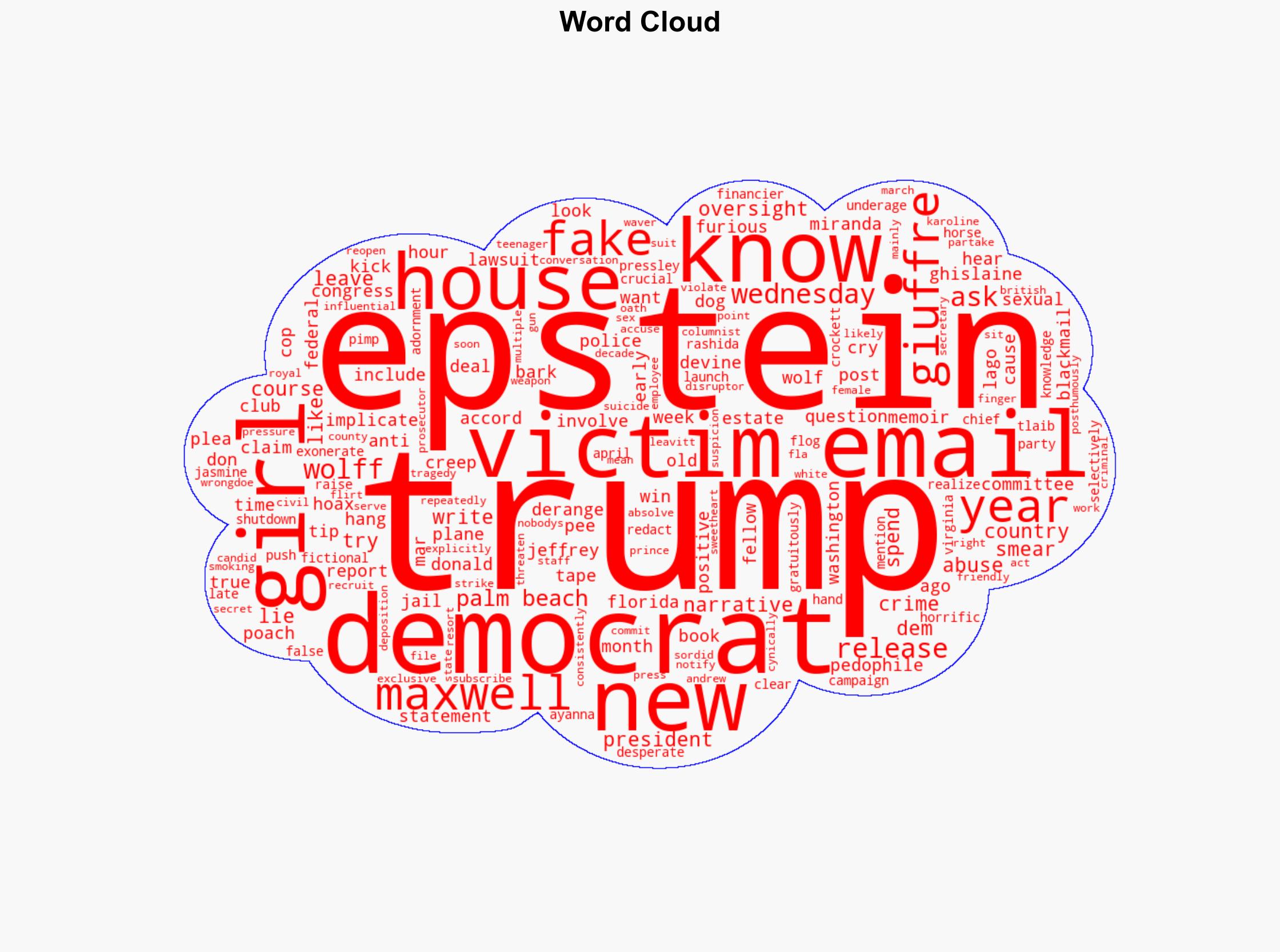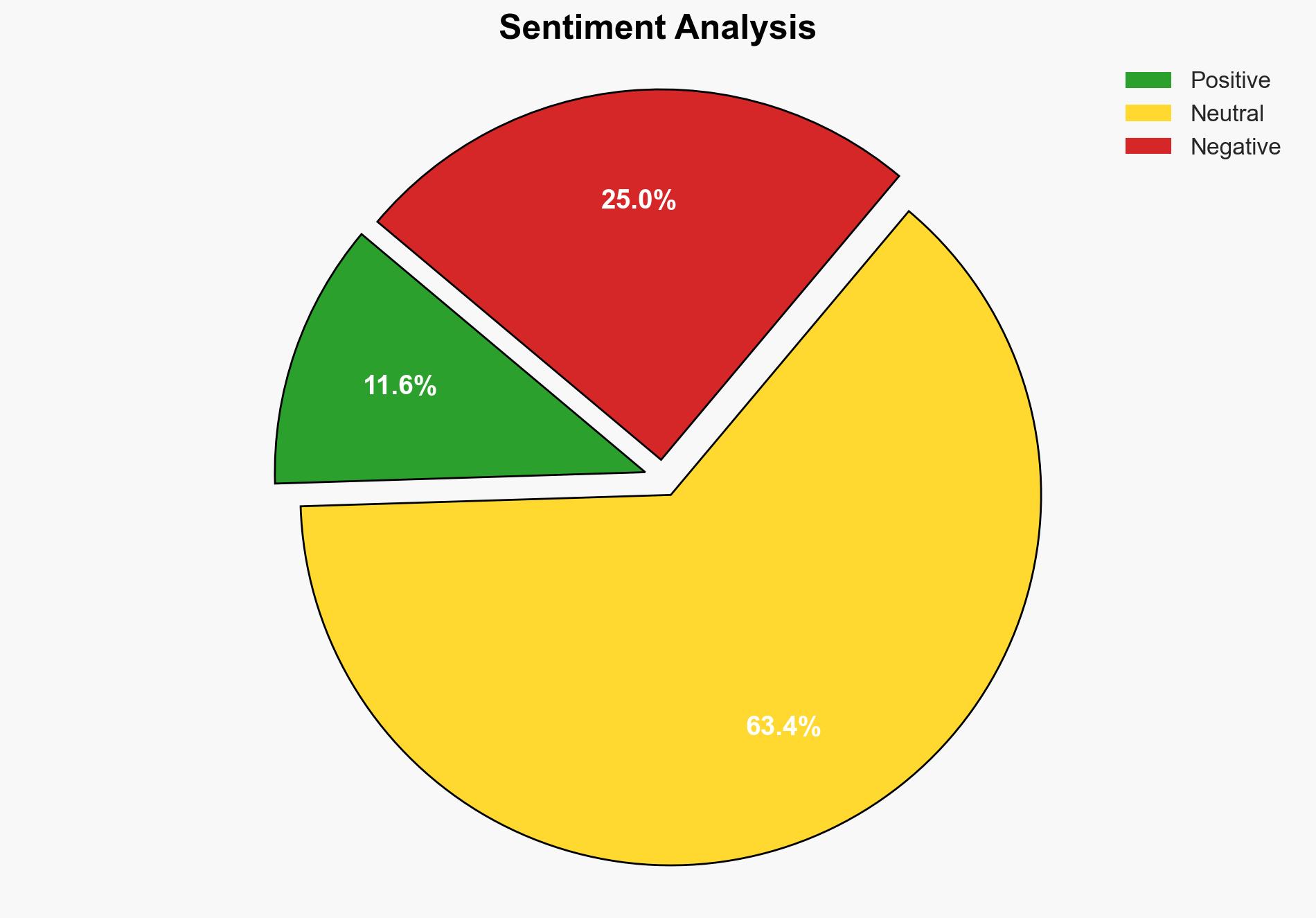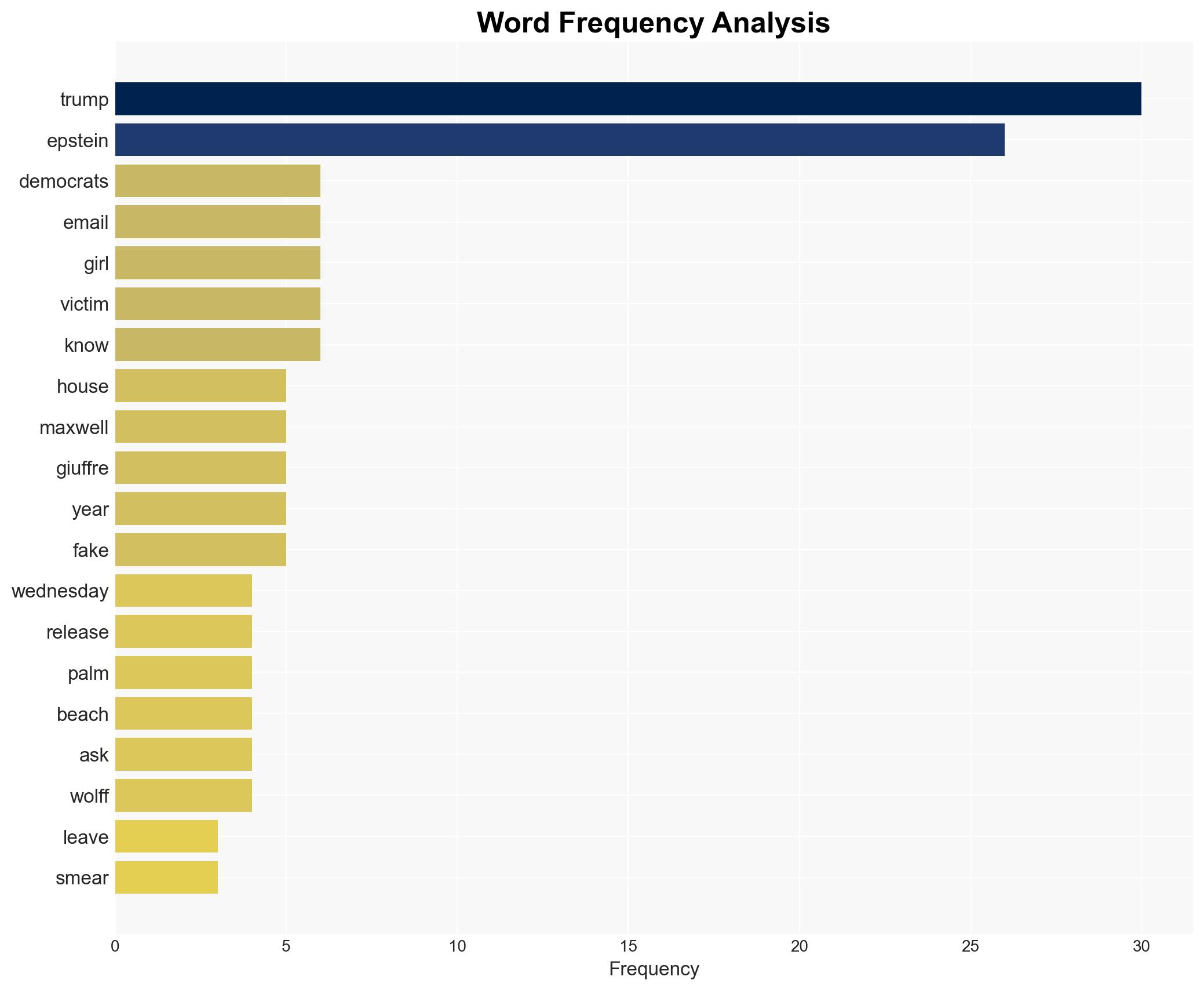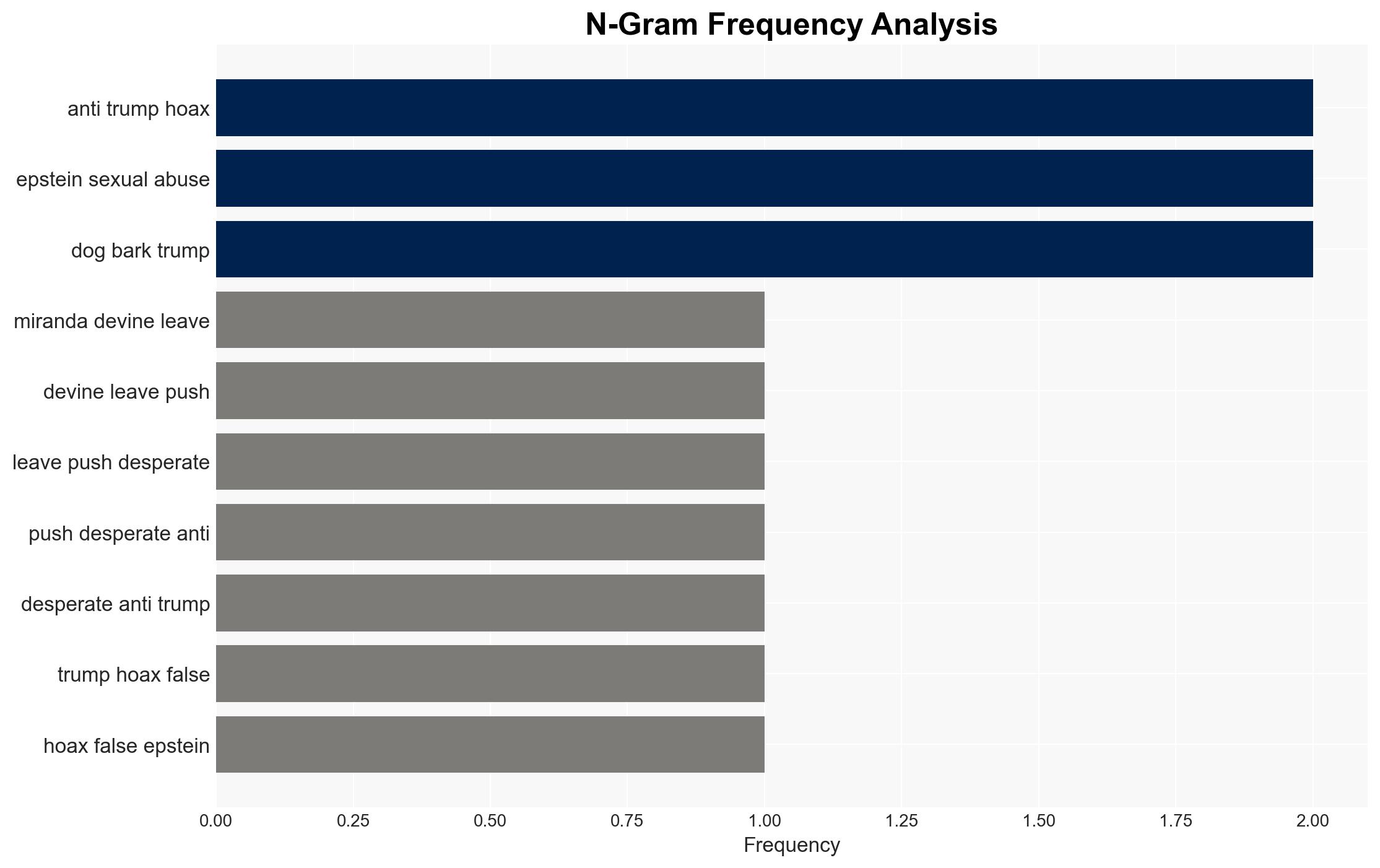Miranda Devine The left is pushing another desperate anti-Trump hoax a false Epstein smear campaign – New York Post
Published on: 2025-11-13
AI-powered OSINT brief from verified open sources. Automated NLP signal extraction with human verification. See our Methodology and Why WorldWideWatchers.
Intelligence Report: Miranda Devine The left is pushing another desperate anti-Trump hoax a false Epstein smear campaign – New York Post
1. BLUF (Bottom Line Up Front)
With moderate confidence, the most supported hypothesis is that the allegations against Donald Trump regarding Jeffrey Epstein are part of a politically motivated campaign by certain Democratic factions to undermine Trump’s political standing. Strategic recommendations include monitoring the situation for further developments and preparing counter-narratives to manage potential reputational damage.
2. Competing Hypotheses
Hypothesis 1: The allegations against Trump are primarily a politically motivated effort by Democrats to damage his reputation and hinder his political influence.
Hypothesis 2: The allegations have some basis in fact, and the Democrats are leveraging genuine evidence to expose potential misconduct by Trump.
Assessment: Hypothesis 1 is more likely given the pattern of previous politically charged accusations against Trump, the timing of the release, and the lack of new, concrete evidence directly implicating Trump in Epstein’s crimes.
3. Key Assumptions and Red Flags
Assumptions: The Democrats have a strategic interest in discrediting Trump; the release of the emails is timed to maximize political impact.
Red Flags: Selective release of information, potential bias in media reporting, and lack of corroborating evidence directly linking Trump to Epstein’s criminal activities.
Deception Indicators: The narrative may be exaggerated or manipulated to fit a political agenda, as evidenced by the selective omission of exonerating details.
4. Implications and Strategic Risks
The allegations could further polarize the political landscape, potentially leading to increased partisan conflict and undermining public trust in political institutions. There is a risk of reputational damage to Trump, which could impact his political capital and influence. If the allegations are proven false, it could backfire on the accusers, damaging their credibility.
5. Recommendations and Outlook
- Monitor media and political discourse for shifts in narrative and emerging evidence.
- Develop and disseminate counter-narratives to address misinformation and protect reputational interests.
- Engage in dialogue with bipartisan stakeholders to mitigate polarization.
- Best-case scenario: Allegations are debunked, and political discourse shifts to substantive policy issues.
- Worst-case scenario: Allegations gain traction, leading to significant reputational damage and political instability.
- Most-likely scenario: The issue remains a point of contention but does not significantly alter the political landscape.
6. Key Individuals and Entities
Donald Trump, Jeffrey Epstein, Ghislaine Maxwell, Virginia Giuffre, House Oversight Committee, Democratic Party members (Jasmine Crockett, Ayanna Pressley, Rashida Tlaib), James Comer.
7. Thematic Tags
National Security Threats, Political Polarization, Media Influence, Reputational Risk
Structured Analytic Techniques Applied
- Cognitive Bias Stress Test: Expose and correct potential biases in assessments through red-teaming and structured challenge.
- Bayesian Scenario Modeling: Use probabilistic forecasting for conflict trajectories or escalation likelihood.
- Network Influence Mapping: Map relationships between state and non-state actors for impact estimation.
Explore more:
National Security Threats Briefs ·
Daily Summary ·
Methodology





